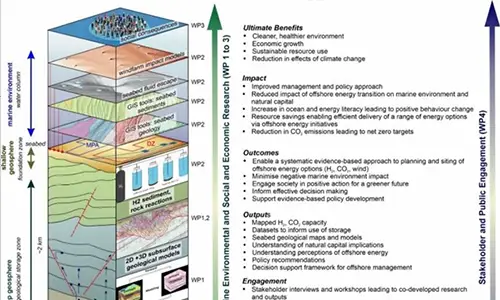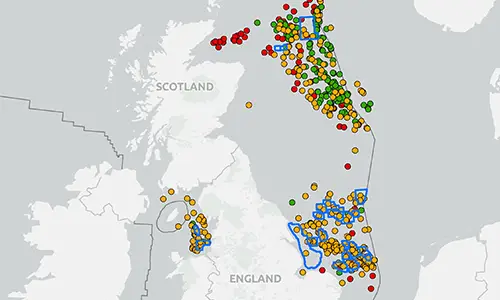The Managing the Environmental Sustainability of the Offshore Energy Transition project (MOET) brings together internationally recognised expertise from BGS, Plymouth Marine Laboratory and the National Oceanographic Centre. In collaboration with our stakeholders, the project will deliver the fundamental environmental, social and economic research needed to support evidence-based decision making, offshore regulation and operational best practice for the sustainable use of the UK continental shelf.

MOET research programme
The programme has been designed to create an understanding of key environmental, social and economic drivers that will support an effective and timely offshore energy transition.

News and resources
Check out the latest news, published papers and other updates regarding the MOET programme.
Stakeholder engagement
The MOET project issues short bi-monthly email newsletters sharing progress and outputs from the research. Engagement with our stakeholder group includes online meetings and periodic in-person meetings. These are attended by project members to enable the team to respond to stakeholder questions and priorities and engage in wider discussions of project outputs. Future meetings will include more focused online sessions in response to stakeholder feedback to address specific points of interest.
If you would like to receive the MOET bi-monthly newsletters and join the stakeholder group contact Hazel Napier (hjb@bgs.ac.uk).
